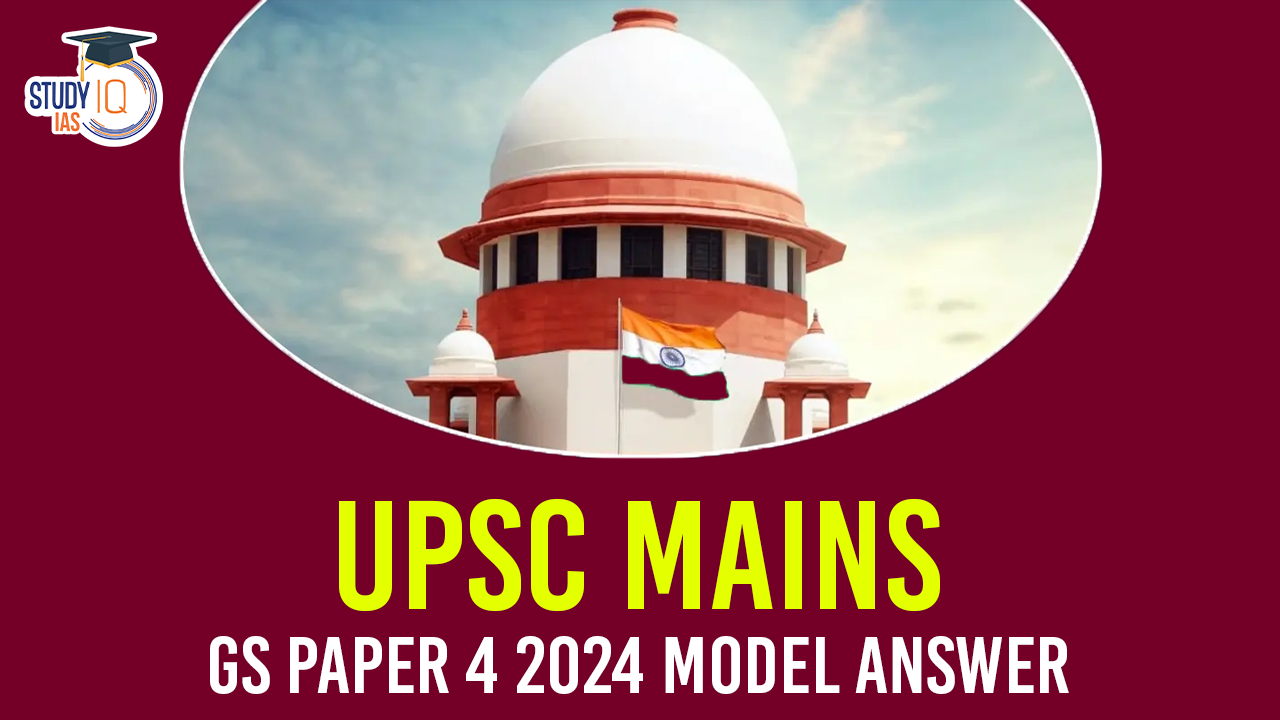Table of Contents
“Mindless addiction to form, ignoring the substance of the matter, results in rendering of injustice. A perceptive civil servant is one who ignores such literalness and carries out true intent.” Examine the above statement with suitable illustrations
Introduction:
You can introduce with mentioning the dichotomy between letter and spirit of the law faced by civil servants. It warns against the dangers of formalist thinking, where adherence to rules, procedures, and technicalities takes precedence over the intent and purpose behind the law or policy.
Mindless addiction to form (rules) can lead to rendering of injustice in following ways:
- Red tapism: focus on procedures, forms, and compliance with rigid rules, leading to delays in decision-making. E.g. in case of road development, defective detailed project reports (DPRs) and cbureaucratic inefficiency hampers even simple tasks, such as pothole repairs.
- Exclusion errors: literal interpretation of laws and rules can sometimes contradict their intended purpose, leading to unjust outcomes.
- E.g. According to the Delhi High Court, denying EWS admission by a school even after allotment by authorities undermines the Right to Education (RTE) Act.
- Hindrance to innovation: ban on cryptocurrency in India led to lagging behind of than countries like Singapore and even small country like.Estonia. Although the ban has been negated by SC, the goal of financial inclusion is missed.
- Denial of essential services: Several beneficiaries under the Ayushman Bharat scheme in India reported that they were denied cashless treatment because their details were not updated in the system
Illustrations of Perceptive Civil Servants Who Prioritized Substance Over Form
- T. N. Seshan – Election Reforms: Seshan reinterpreted existing rules to strengthen electoral integrity by introducing reforms like strict enforcement of the Model Code of Conduct, curbing electoral malpractices, and reducing the influence of black money. By doing so, he focused on the true intent of democracy and electoral justice.
- Armstrong Pame – The People’s Road: Pame used crowdfunding and community participation to build the road, ignoring the slow-moving bureaucratic process that would have delayed the project for years. His decision was based on the substantive need for infrastructure, showcasing how the intent of governance.
- E. Sreedharan – The Delhi Metro: Sreedharan’s leadership was marked by his insistence on quality, speed, and efficiency, cutting through red tape to achieve the broader goal of modernizing urban transport in India.
How Civil Servants Can Balance Form and Substance
- Using empathy and compassion within the Framework of Law: Civil servants should use their discretionary powers within the framework of law to achieve equitable outcomes.
- A civil servant dealing with an issue of an old-age pensioner missing documents should focus on ensuring the pension reaches the elderly, even if it requires using discretion in document verification.
- Continuous Training and Awareness: to transform formalist thinking to prioritize substantive justice.
- Encouraging Public-Centric Governance: can lead to innovative solutions, streamlined procedures, and a focus on delivery of services rather than just following procedures.
Conclusion:
“Laws are made for men, and not men for laws;” and civil servants must ensure that the purpose of law serves justice, not the rigid application of its letter.” This emphasizes the idea that true justice lies in understanding and implementing the spirit of the law rather than being bound by its literal interpretation, urging civil servants to act with discernment, empathy, and a focus on public welfare.


 UPSC CAPF Interview 2024 Dates Out: Chec...
UPSC CAPF Interview 2024 Dates Out: Chec...
 UPSC Notification 2025: Download PDF, IA...
UPSC Notification 2025: Download PDF, IA...
 CDS Syllabus 2025, Download Subject Wise...
CDS Syllabus 2025, Download Subject Wise...





















